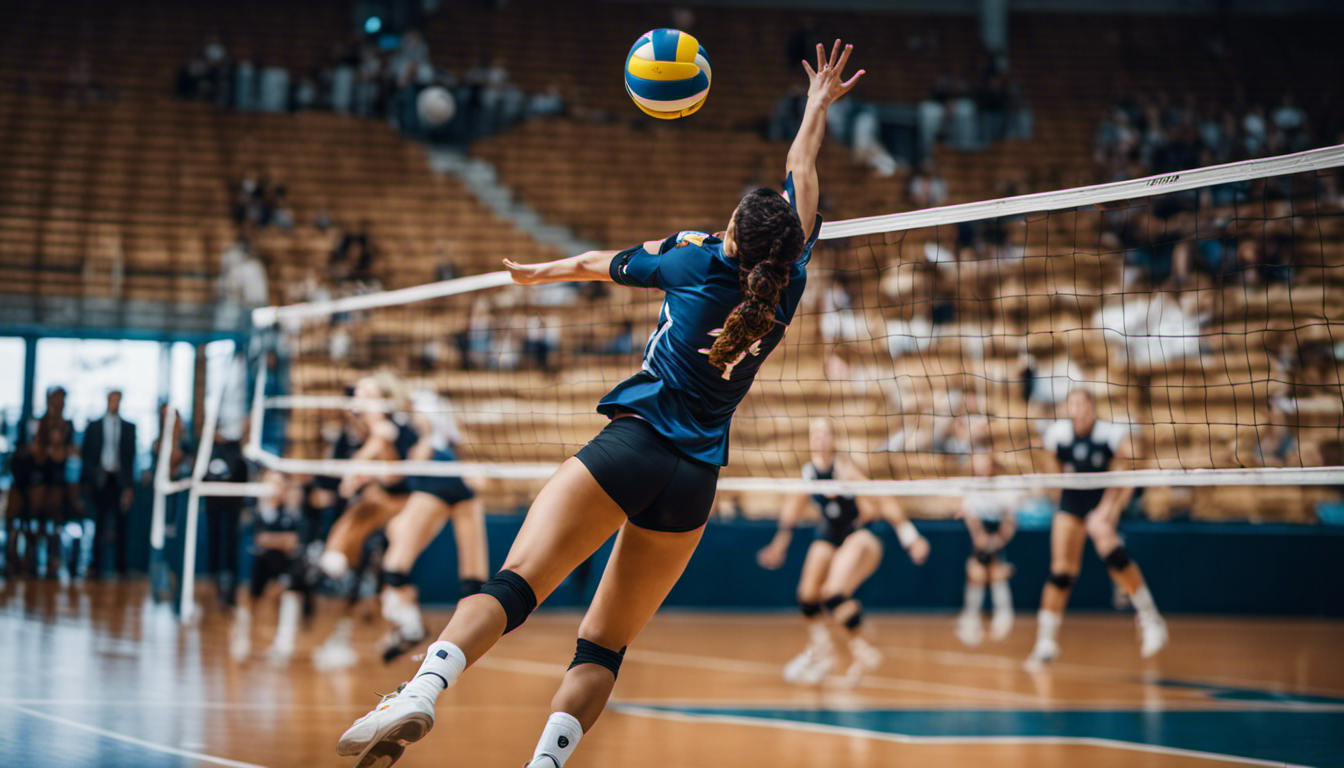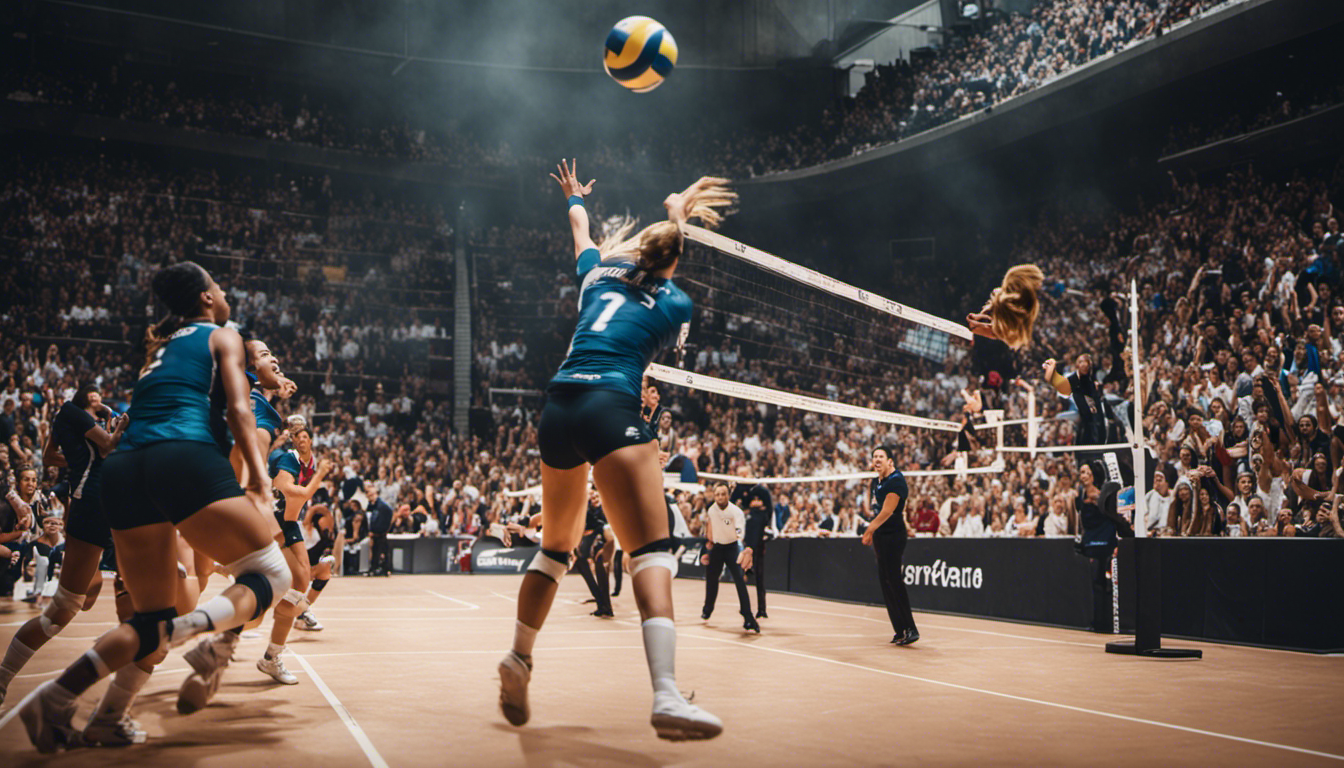As a seasoned volleyball player, I know firsthand the importance of teamwork in winning matches. It’s not just about individual skills, but also about effective communication and coordination on the court.
In this article, I will share strategies that have proven successful in achieving victory. From mastering set plays to analyzing opponents, we’ll delve into the key elements that make up a winning team.
Get ready to elevate your game and dominate the court with these teamwork tactics!
Key Takeaways
- Effective communication and signaling through body language, eye contact, and hand signals enhance understanding and synchronization during gameplay.
- Positioning and movement, along with constant communication, ensure that everyone is in the right place at the right time.
- Mastering set plays requires perfect timing, effective communication, and the ability to read defenses.
- Trust and chemistry within the team lead to seamless teamwork and better performance on the court.
The Power of Communication

You’ll need to communicate effectively with your teammates in order to succeed in volleyball matches. Communication is the key to a well-coordinated and cohesive team. One way to improve communication on the court is by focusing on non-verbal cues. These cues include body language, eye contact, and hand signals that convey important messages without speaking a word. By honing these skills, you can enhance your team’s understanding and synchronization during gameplay.
Another effective method for communication is utilizing team signals. These signals are pre-determined gestures or signs that have specific meanings within the team. They allow players to quickly convey strategies, plays, or adjustments without disrupting the flow of the game. Utilizing team signals not only saves time but also keeps opponents guessing.
Effective Positioning and Movement
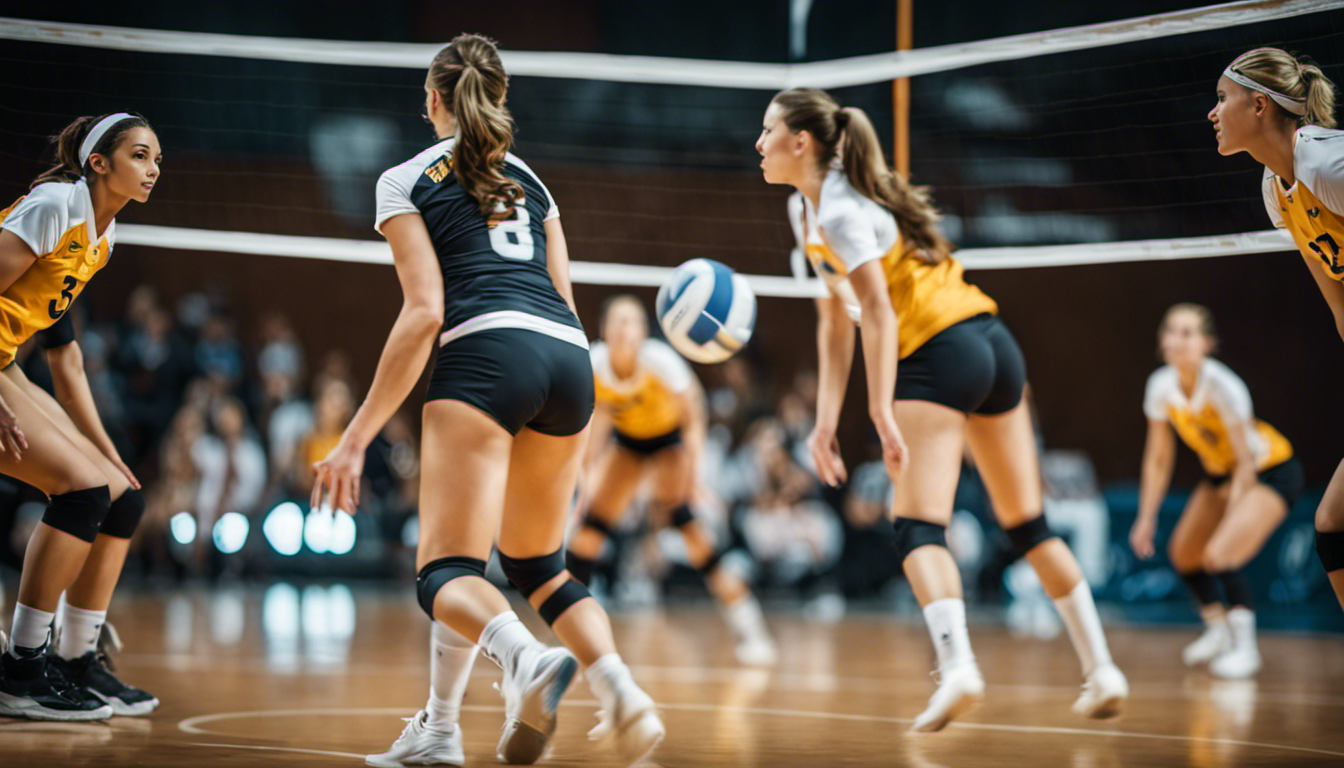
During a volleyball game, it’s essential to maintain effective positioning and movement on the court. As an experienced player, I understand the importance of strategic placement and quick footwork. Here are some key points to remember:
-
Defensive Strategies:
-
Anticipation: Read your opponent’s movements and position yourself accordingly.
-
Communication: Constantly communicate with your teammates to ensure everyone is in the right place at the right time.
-
Offensive Tactics:
-
Spacing: Spread out on the court to create openings for attacks.
-
Timing: Coordinate your movements with your setter to execute powerful offensive plays.
By mastering these techniques, you’ll not only be able to defend against your opponents’ attacks but also launch successful offensive moves. Remember, effective positioning and movement are the foundations of a winning volleyball strategy.
Mastering the Art of Set Plays
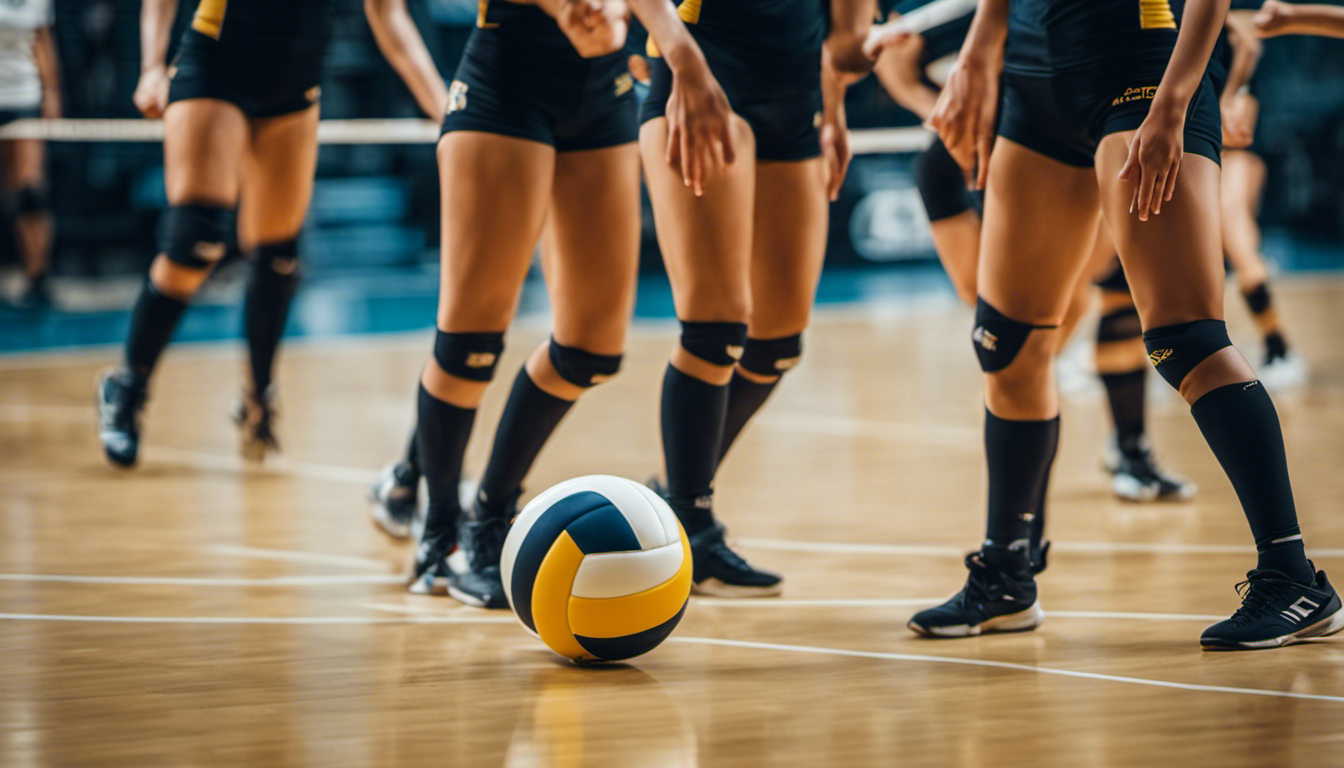
To excel in set plays, it’s crucial to communicate effectively with your teammates and anticipate their movements on the court. Perfecting timing and reading defenses are key elements in mastering the art of set plays. By understanding the strategies and tactics involved, you can create opportunities for your team to score points efficiently.
Timing is everything in executing set plays. It requires a deep understanding of each teammate’s abilities and tendencies. Anticipating their movements allows you to deliver accurate sets that maximize scoring potential.
Reading defenses is another essential skill. By observing how the opposing team positions themselves, you can make split-second decisions on where to direct your sets. Identifying gaps in their defense enables you to exploit weaknesses and create scoring opportunities for your team.
In summary, mastering set plays requires effective communication, perfect timing, and the ability to read defenses. By honing these skills, you can elevate your performance on the court and contribute significantly to your team’s success.
| Skills | Description | Importance |
|---|---|---|
| Effective Communication | Clear and concise communication with teammates enhances coordination during set plays | Crucial |
| Perfect Timing | The precise execution of sets at the right moment maximizes scoring potential | Essential |
| Reading Defenses | Analyzing opponent’s positioning helps identify weaknesses for successful attacks | Vital |
Table: Key Skills for Mastering Set Plays
Developing Trust and Chemistry
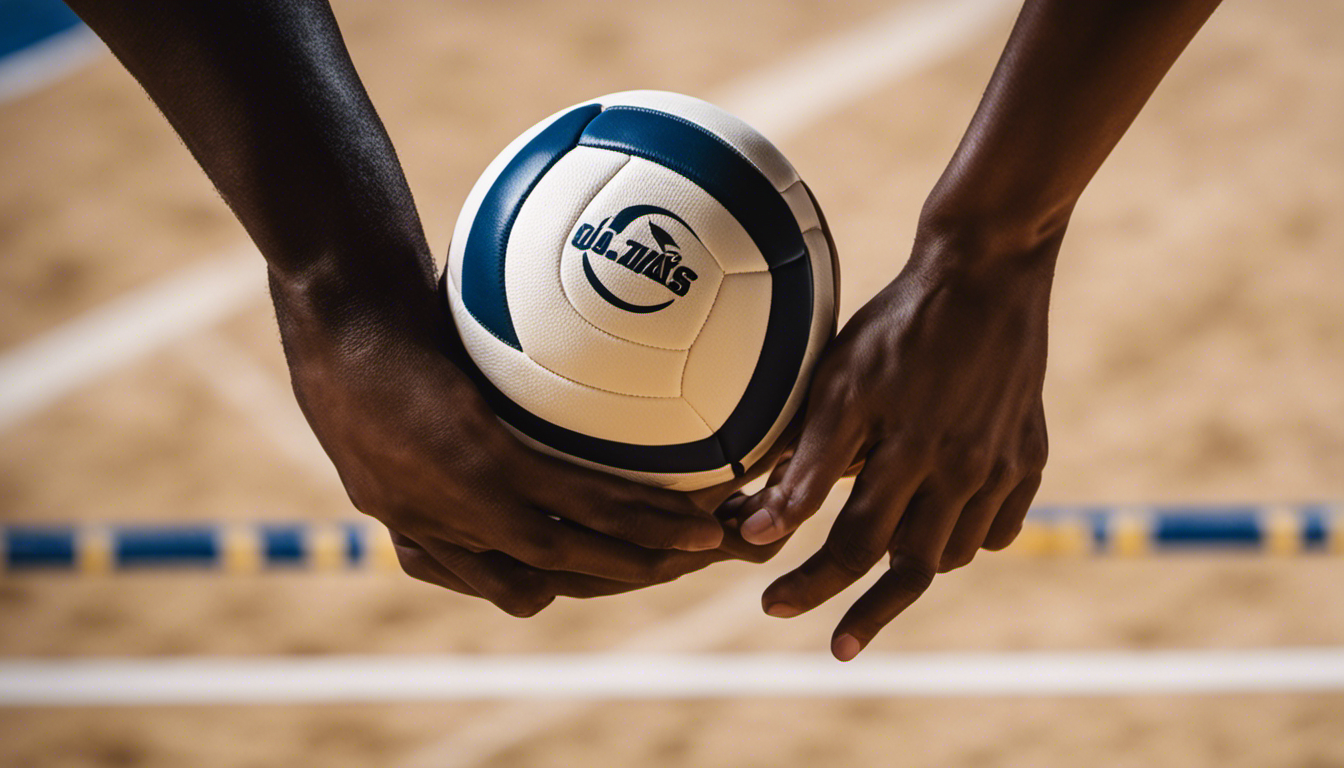
Developing trust and chemistry with your teammates is crucial for effective coordination on the court. As a volleyball player, I understand the importance of building rapport and fostering collaboration within the team. Here are some strategies to help you achieve this:
-
Communication:
-
Openly communicate with your teammates during practices and games.
-
Use clear and concise language to convey your intentions.
-
Team-building activities:
-
Participate in team-building exercises outside of practice.
-
Engage in social activities to strengthen bonds off the court.
By focusing on these strategies, you can create an environment where trust and chemistry thrive.
When players trust each other’s abilities and feel comfortable collaborating, it leads to seamless teamwork and better performance on the court.
Analyzing and Adapting to Opponents
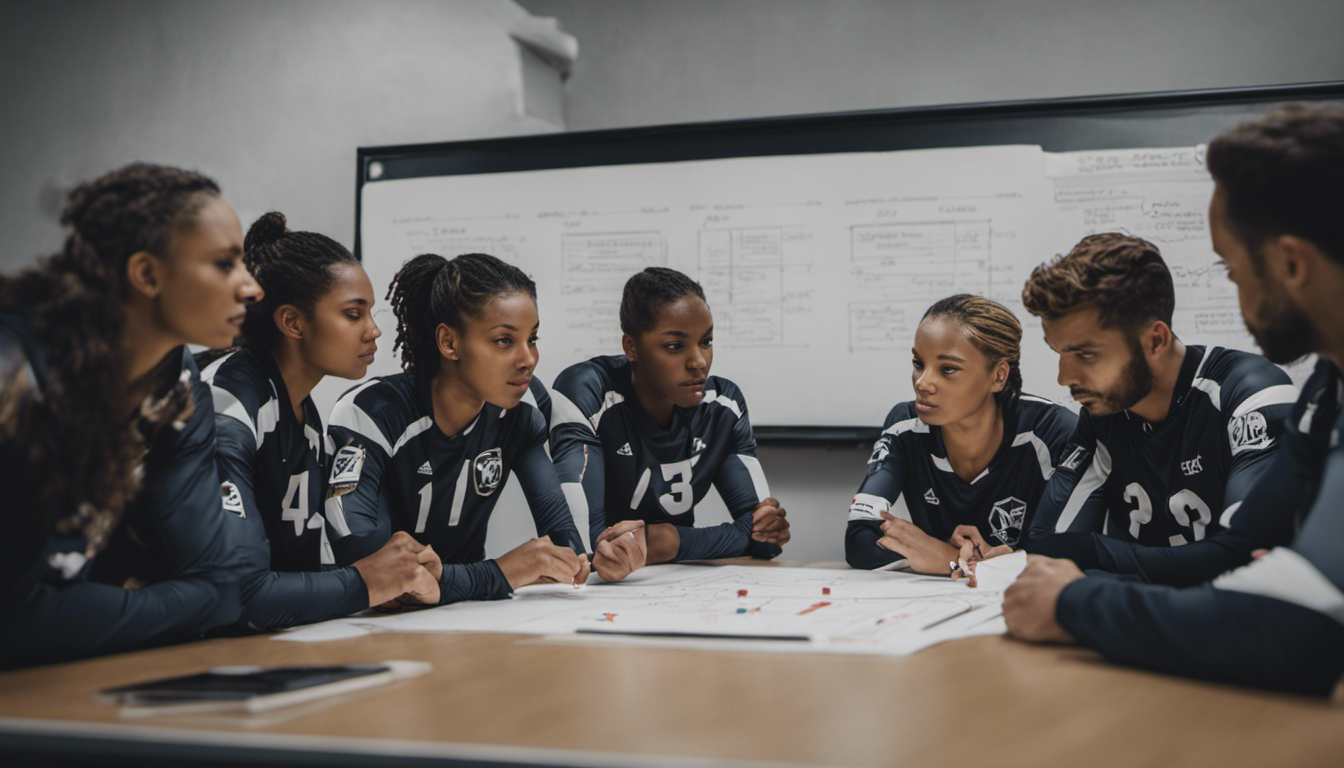
Analyzing and adapting to your opponents is crucial for anticipating their moves and gaining a strategic advantage in games. Strategic scouting allows us to gather valuable information about our opponents’ strengths and weaknesses, enabling us to adjust our game plan accordingly. By studying their previous matches and observing their playing style, we can identify patterns and tendencies that can be exploited to our advantage.
To help you understand the importance of analyzing and adapting, let me provide you with a table showcasing how game plan adjustments can lead to success:
| Opponent’s Strengths | Game Plan Adjustment |
|---|---|
| Powerful serves | Focus on reception |
| Strong hitters | Improve blocking |
| Quick setters | Enhance defense |
By making these targeted adjustments, we are better prepared to counteract our opponents’ strategies and nullify their strengths. This not only gives us a tactical edge but also boosts our confidence on the court.
Frequently Asked Questions
What Are the Different Types of Serves in Volleyball?
There are two main types of serves in volleyball: the jump serve and the float serve. Both require skill and practice to execute effectively. Let’s dive into the details of each serve and how they can impact a game.
How Can Individual Players Improve Their Skills and Techniques?
To improve my skills and techniques, I focus on individual practice sessions. By dedicating time to specific areas like serving, passing, and setting, I can develop these skills and become a stronger player.
What Are Some Common Mistakes Made by Beginners in Volleyball?
As a seasoned player, I’ve observed common mistakes made by beginners in volleyball. These include improper footwork, weak serves, and lack of communication. By addressing these errors, beginners can improve their game and become more effective players.
How Does the Team Captain Play a Crucial Role in Leading the Team?
The team captain plays a crucial role in leading the team by communicating effectively, building team morale and unity. It is important to have strong leadership skills and strategies to guide the team towards success.
What Are Some Effective Ways to Improve Teamwork and Coordination Among Players?
To improve teamwork and coordination among players, team building exercises and effective communication techniques are crucial. By fostering trust, promoting open dialogue, and encouraging collaboration, we can enhance our overall performance on the court.
Conclusion
In conclusion, mastering the strategies for winning volleyball matches requires a combination of teamwork, communication, and adaptability.
By effectively communicating with our teammates, we can ensure that everyone is on the same page and working towards a common goal.
Positioning and movement are crucial in order to maximize our efficiency on the court.
Mastering set plays allows us to outsmart our opponents and gain an edge.
Lastly, developing trust and chemistry within the team fosters a strong foundation for success.
With these strategies in place, we will be unstoppable on the volleyball court.
So let’s come together, work as one unit, and dominate every match!

